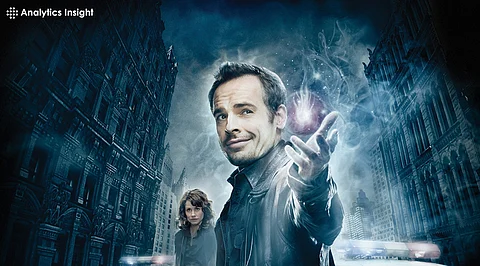

The 2000s marked a pivotal era in the evolution of fantasy television shows, with significant investments in world-building, character development, and serial storytelling. This period witnessed the genre's transition from niche audiences to mainstream success, garnering critical acclaim and numerous awards.
This transformative era in television programming was defined by the convergence of mythology, complex conflicts, and richly detailed fantasy worlds.
Technological advancements permitted television show producers to present detailed fantasy worlds on television without the limitations of previous decades. Audiences were more tolerant of dense, serialized programming with complex character arcs and supernatural themes. Fantasy and reality were mixed to enable such programs to address questions of identity, morality, and authority from unorthodox perspectives.
Premiering in 2001, Smallville made Clark Kent a reality years before he became Superman. The show traced his teenage and domestic lives and the initial stages of learning about his powers. Its mix of romance, mystery, and ethical conflicts set the model for future superhero dramas.
Although it started in the late 1990s, Charmed ruled the early 2000s by depicting the Halliwell sisters. The series mixed magic, emotional complexity, and social issues. As the sisters grew up, so did the show's storytelling complexity, making it a classic fantasy television series.
Premiering in 2005, Supernatural documented the existence of Sam and Dean Winchester. The show explored religious myth and folklore with substantial emotional depth by killing demons, ghosts, and angels. One of television's longest-running fantasy programs, it won acceptance for its lore, humor, and dark narrative threads.
Though it started in the late 1990s, Buffy became an iconic force well into the early 2000s fantasy world. It exceeded its premise by incorporating horror, high school drama, and philosophical undertones. The series reshaped what could be accomplished using female-dominated fantasy.
BBC's Merlin reimagined the ancient legend for teenagers. It followed a youthful Merlin along with Prince Arthur through his destiny. The show blended court politics, moral issues, and magical threats within a visually dramatic medieval backdrop.
Premiering in 2006, Heroes featured normal people discovering they have superpowers. The series drew parallels with common fears and identity crises. It was unique in that it turned superhuman powers into a curse and a blessing, making the viewers sympathize and tense up.
Inspired by Terry Goodkind's books, this fantasy series was on television from 2008 until 2010. The series was set in a fantasy realm and included the adventures of a Seeker, a Confessor, and a Wizard. Sword fighting, politics, and legendary magic characterized its tone.
Mixing science fiction and fantasy, The 4400 introduced an extraterrestrial phenomenon: individuals who disappeared over decades returned with inexplicable abilities. The series defied fate, evolution, and social change.
Premiering in 2008, Being Human had a vampire, a werewolf, and a ghost cohabiting in contemporary Britain. Based on fantasy, but centered on isolation, addiction, and guilt, it was real. Moral complexity and multi-dimensional characters earned the show its awards.
Although it first premiered in 2011, production and casting took place sometime in the late 2000s. Game of Thrones' initial season revolutionized fantasy television. Its realism, political maneuvering, and commitment to breaking expectations won an international audience and established a new model for genre storytelling.
The fantasy boom of the 2000s not only captivated audiences but also pushed the boundaries of storytelling, exploring mature themes and cultivating passionate fan bases. Its impact remains evident in today's fantasy television landscape, showcasing the genre's ability to mirror and shape our understanding of the human experience.
